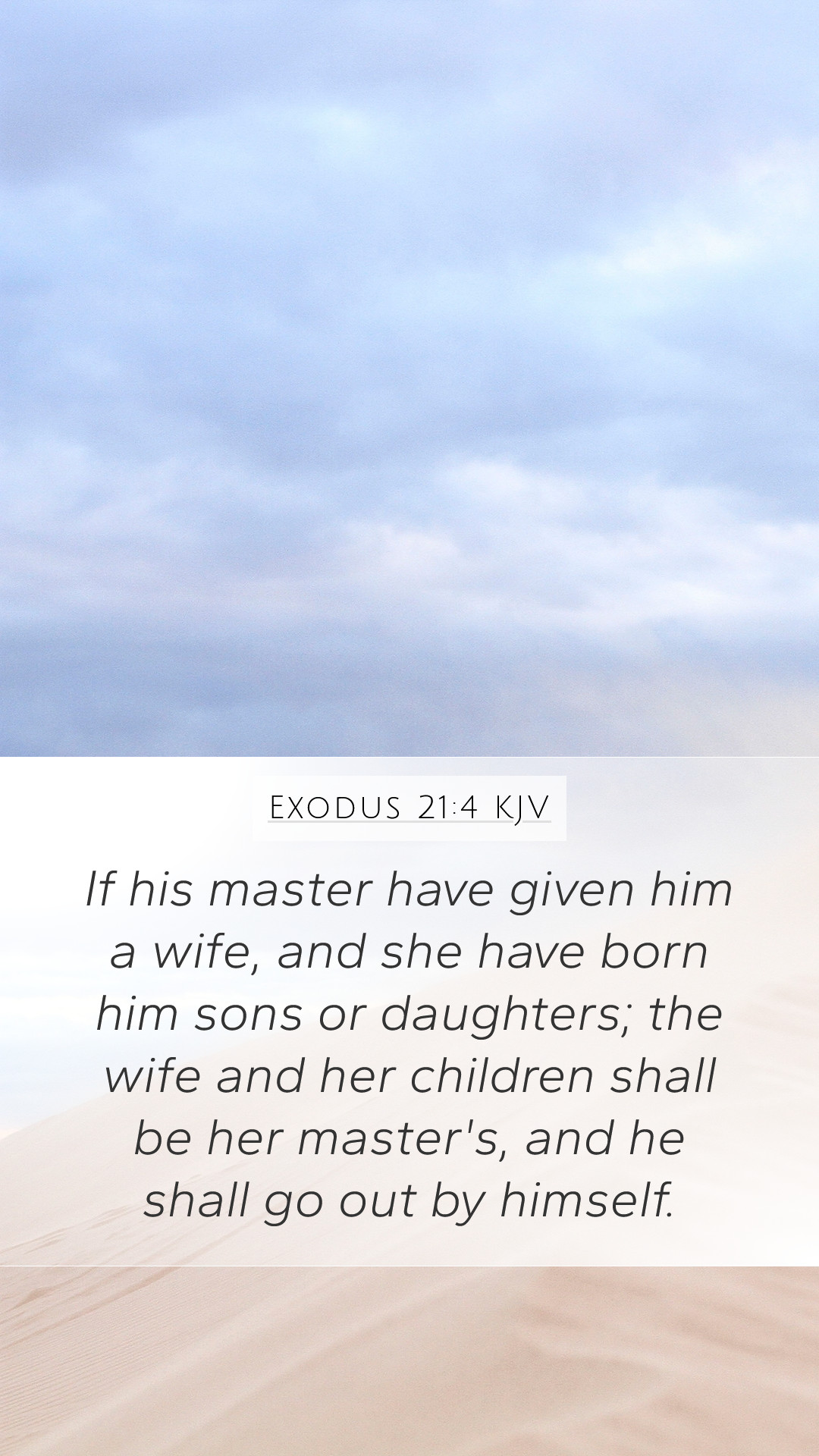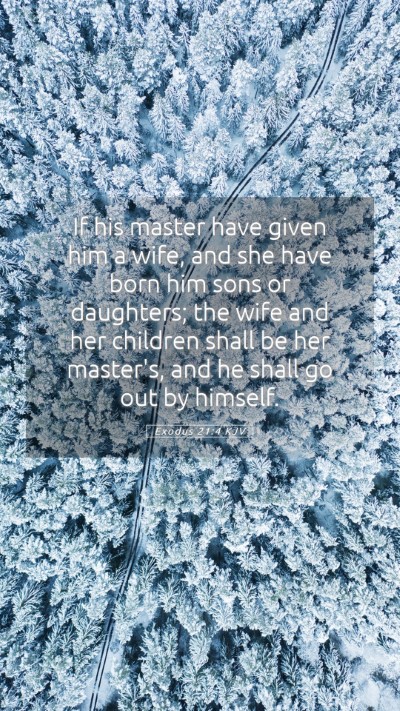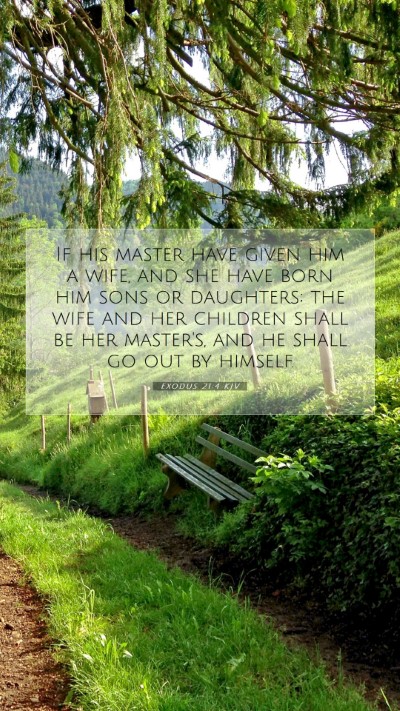Meaning and Interpretation of Exodus 21:4
Exodus 21:4 states: "If his master has given him a wife, and she has borne him sons or daughters, the wife and her children shall belong to her master, and he shall go out alone."
This verse deals with the complex relationship between masters and servants in ancient Israelite society, particularly focusing on the laws regarding slavery and the rights of servants.
Bible Verse Explanations
In understanding Exodus 21:4, we look into various interpretations by prominent biblical commentators, which reveal the underlying principles of the text:
-
Matthew Henry:
Henry emphasizes the implications of servitude and marriage within the household. He notes that the servant, when given a wife by his master, creates a household that is subject to the master’s ownership. Thus, familial ties do not alter the master’s claim over the family unit.
-
Albert Barnes:
Barnes highlights the societal norms of the time, indicating that the laws of slavery were accepted in Israel as a means of social and economic structure. He elaborates that the law acknowledges personal relationships formed within servitude but ultimately prioritizes the master’s authority over these relationships.
-
Adam Clarke:
Clarke provides insights into the moral and ethical dimensions of this law. He argues that while this may appear harsh by modern standards, the law contains implicit protections for both the servant and the family unit, suggesting that the master had obligations towards the welfare of the family in his household.
Understanding Scripture: Historical Context
To apply careful biblical exegesis and understand historical context, we must consider the practices of ancient Hebrew society. Slavery was common, and laws provided guidelines to uphold justice and reduce abuse. This verse serves as a legal provision within broader laws concerning social relationships.
Applications of Exodus 21:4 in Modern Life
This verse can be seen as a reflection of the complexities inherent in relationships where power dynamics are at play. Understanding it can help in discussing themes of freedom, family, and societal obligations in modern contexts:
- To analyze the implications of power in relationships.
- To educate on historical injustices and their modern parallels.
- To encourage discussions in Bible study groups about servitude and social contracts.
Related Bible Cross References
- Exodus 21:2-3 - Discusses the regulations regarding the release of Hebrew slaves.
- Leviticus 25:39-43 - Addresses treatment and rights of Hebrew servants.
- Deuteronomy 15:12-18 - Outlines the release of slaves during the Year of Jubilee.
Conclusion
Exodus 21:4 provides critical insight into the ancient practices surrounding servanthood, relationships, and community obligations. By understanding these Bible verse meanings, one can engage in deeper Bible study insights and foster discussions on how ancient laws can inform modern ethical practices.


